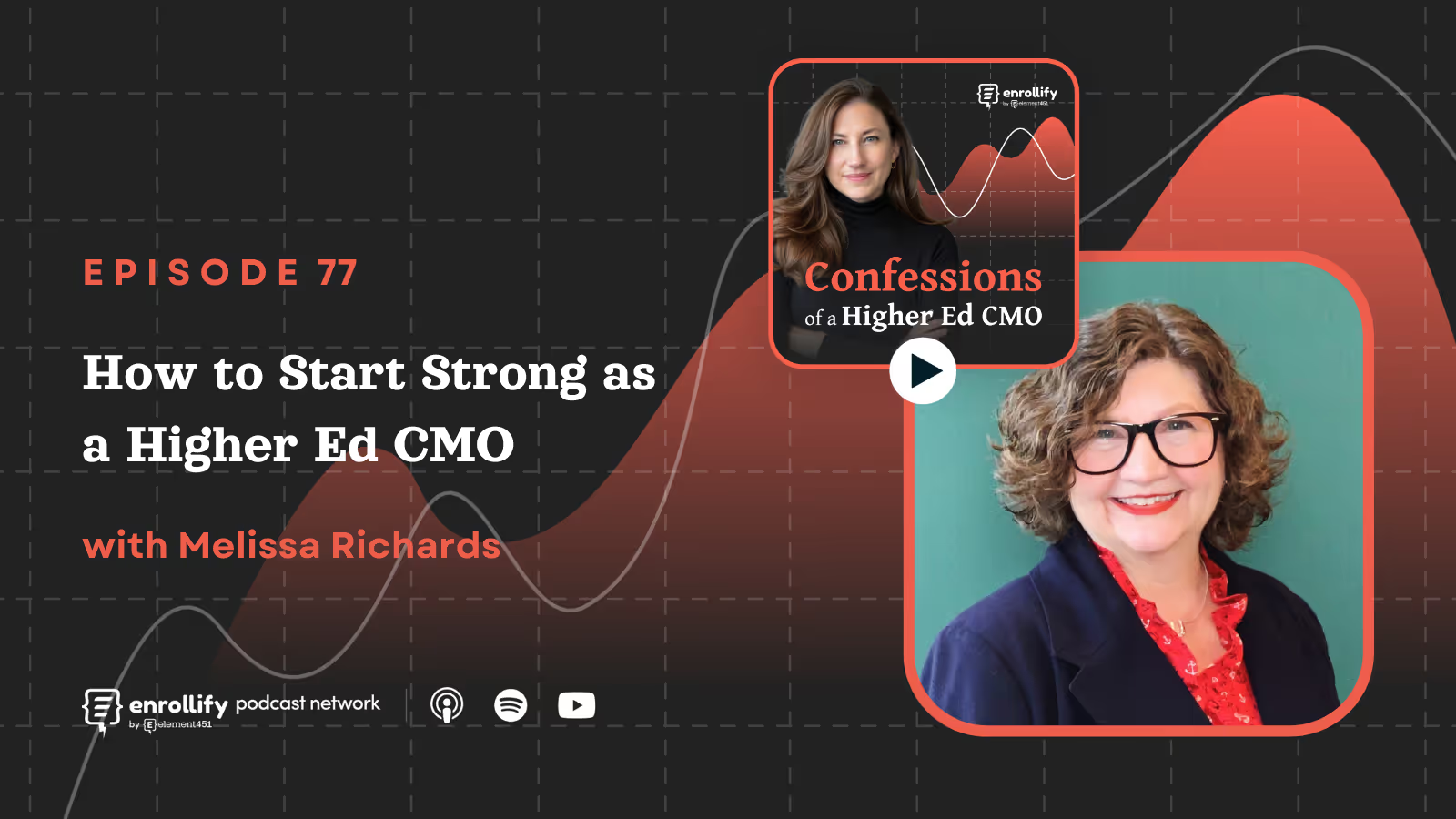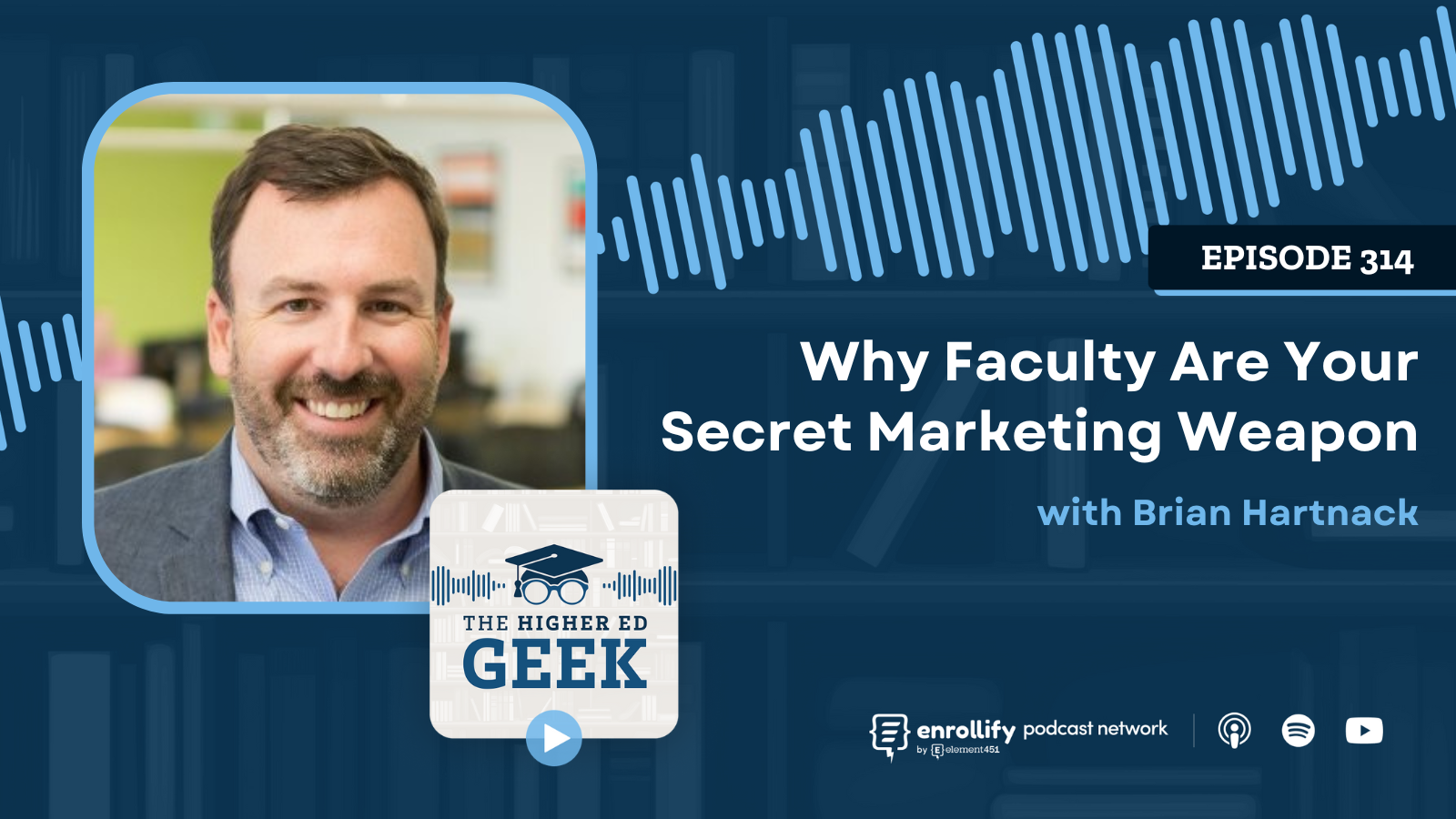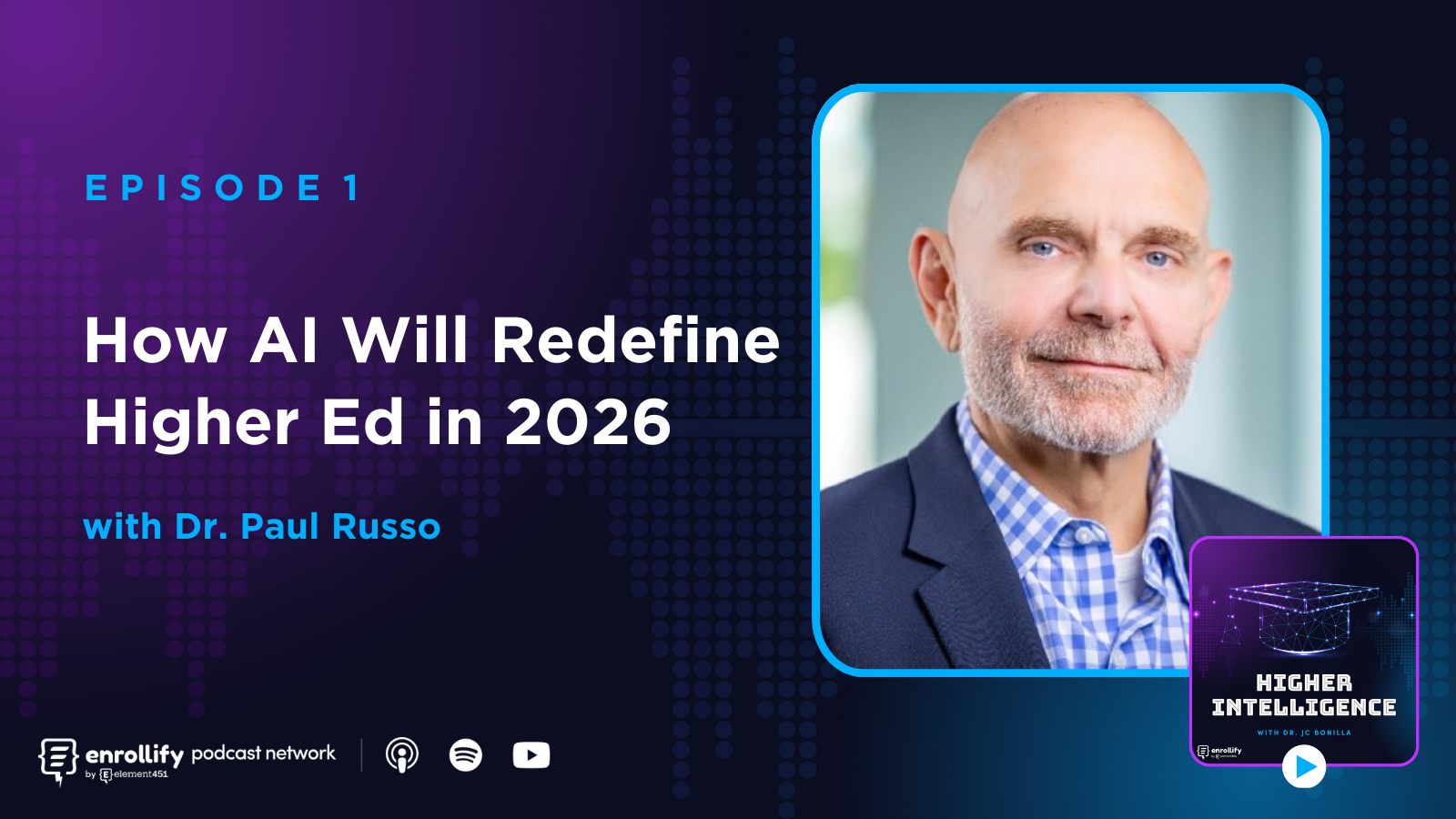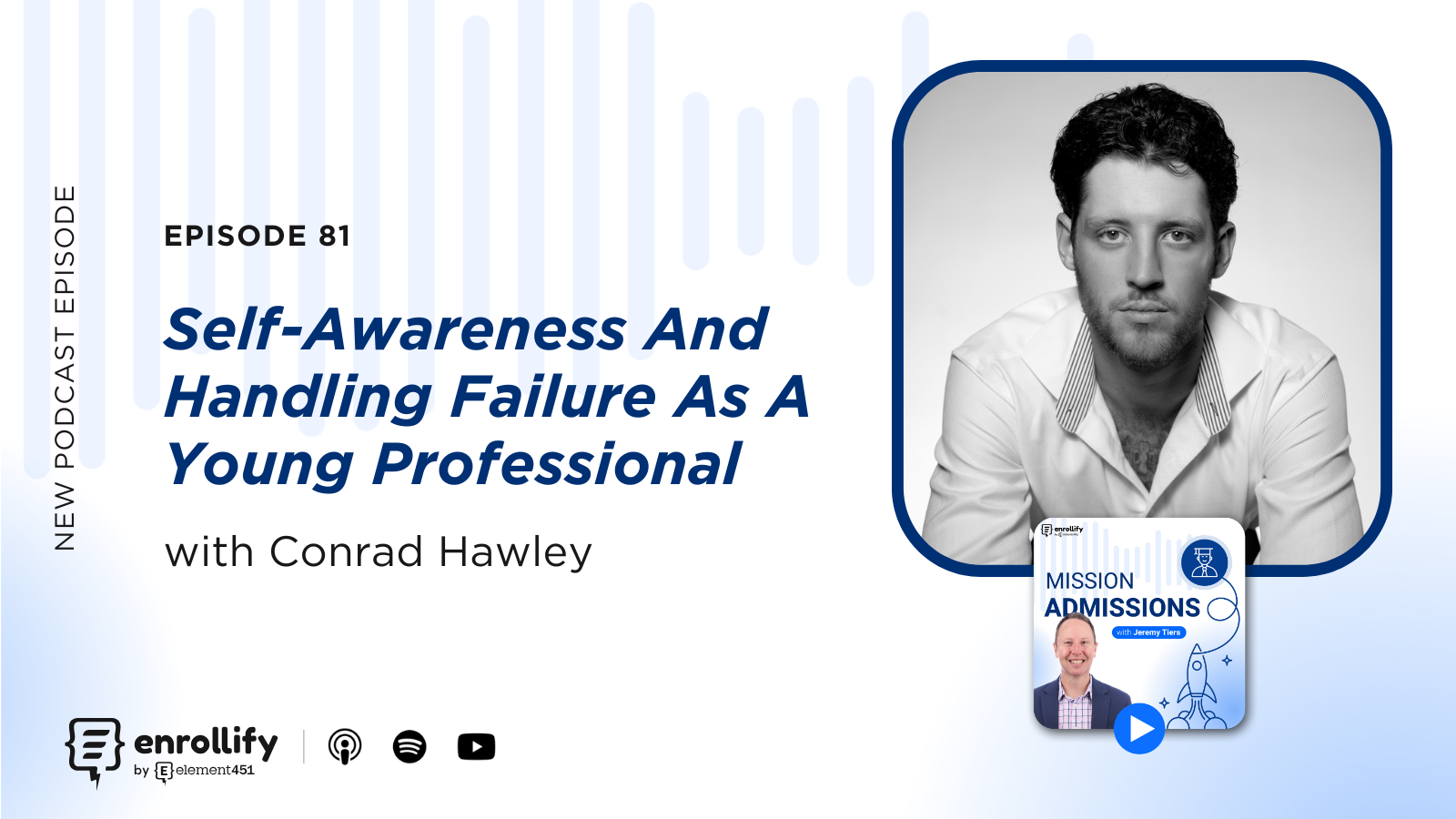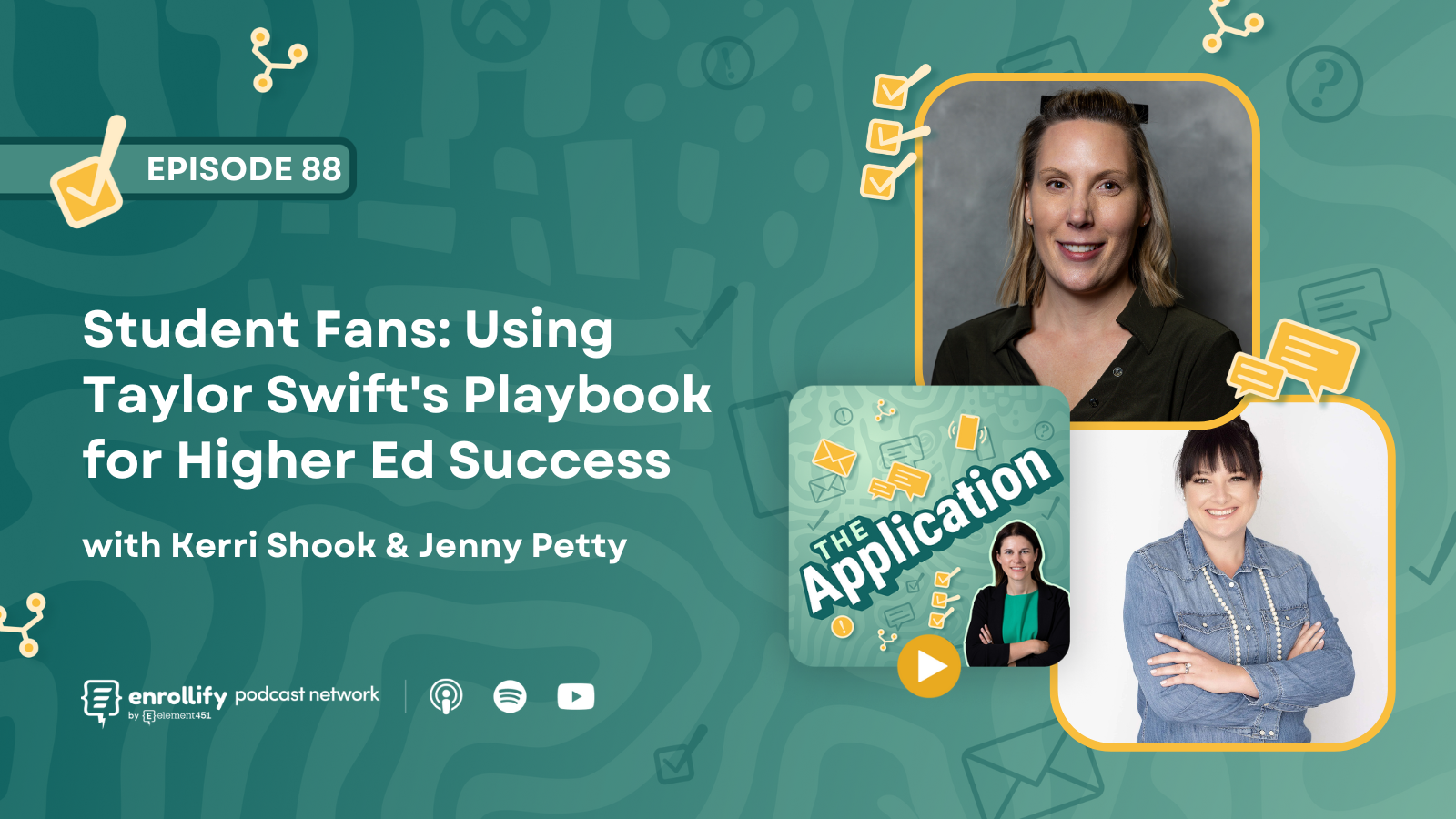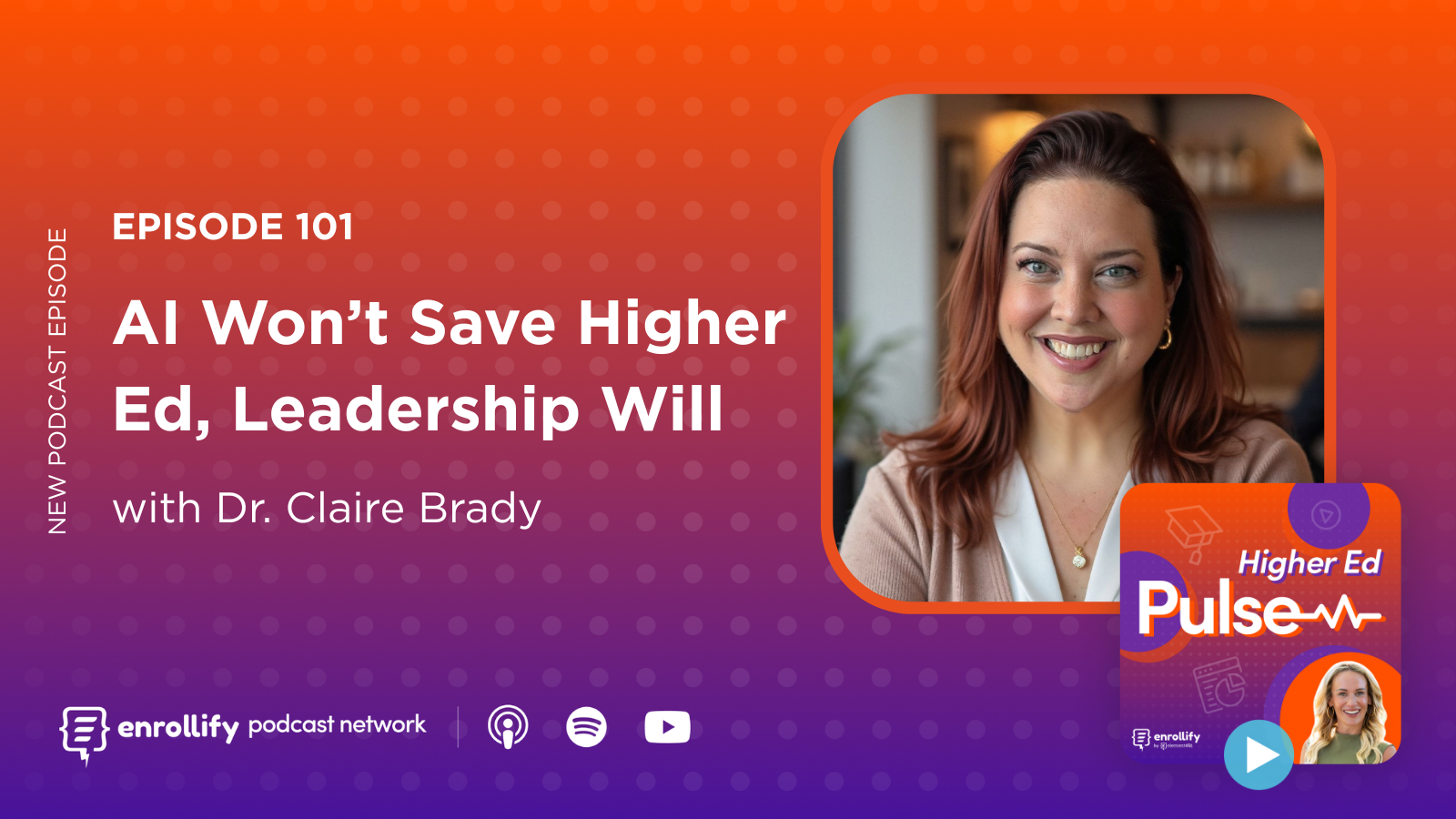About the Episode
Got a story to tell? An innovative idea to share? Fill out our guest nomination form and let's chat!
About the Episode:
The 30-60-90-Day Handbook: Checklists for Communications and Marketing Leaders in Higher Education
In this episode of Confessions of a Higher Ed CMO, Jaime Hunt sits down with leadership coach, author, and longtime friend Melissa Farmer Richards to unpack her new book, The 30-60-90 Day Handbook. The conversation dives deep into how new and seasoned leaders alike can thrive in higher ed by mastering the fundamentals of trust, credibility, and commitment—while navigating modern leadership challenges like burnout, crises, and emerging AI tools. Whether you're stepping into a VP role or eyeing leadership from your current position, this episode offers actionable strategies to lead with authenticity and resilience.
Key Takeaways
- The 30-60-90 day framework is a powerful tool for new leaders in higher education. It helps prioritize trust, credibility, and commitment in a structured and strategic way.
- Building trust is the foundation of leadership. Without trust, it’s nearly impossible to earn credibility or demonstrate long-term commitment.
- This framework applies to any role—not just senior leadership. It’s especially useful for anyone aspiring to become a CMO or VP.
- Authenticity, vulnerability, and compassion are leadership superpowers. These traits help leaders connect on a human level and build psychological safety on teams.
- Higher ed leaders must be prepared to manage crises. Mini-moments and unforeseen events often happen within the first 90 days.
- Don’t overpromise. A common early misstep for leaders is saying yes to everything—leading to broken trust and poor alignment with strategic goals.
- Mentorship and coaching matter more than ever. In times of rapid change, surrounding yourself with a diverse "board of advisors" is essential.
- AI literacy is no longer optional. Leaders must understand AI tools and foster a culture of learning and experimentation across their teams.
- Self-care isn’t a luxury—it’s a leadership necessity. Setting boundaries, modeling wellness, and investing in support systems are key to sustainable leadership.
Why did Melissa Richards write The 30-60-90 Day Handbook?
After years of building and refining her own 30-60-90 day checklists as she transitioned into VP roles, Melissa Richards realized her framework had value far beyond personal use. The response to her presentation at the 2023 CASE Conference on marketing and branding affirmed this—leading her to write a book that blends practical tools with leadership philosophy.
What are the “three fundamentals of leadership” Melissa identifies in the book?
Melissa's leadership framework revolves around three concentric fundamentals:
- Trust – the core of all successful leadership relationships, built through consistency and transparency.
- Credibility – earned through action, integrity, and results over time.
- Commitment – demonstrated by aligning work with institutional mission and showing up with purpose.
Each of these layers supports the next, creating a sustainable and values-driven leadership model.
How can this framework be applied beyond senior leadership roles?
Melissa emphasizes that the 30-60-90 day structure isn't just for VPs. Anyone—from entry-level staff to middle managers—can use the framework to navigate new roles, manage up effectively, and lay the groundwork for future leadership. Practicing these skills early creates natural confidence and muscle memory when stepping into more senior positions.
What common mistakes do new leaders make in their first 30 days?
Trying to please everyone is a top pitfall. Melissa cautions against over-promising or taking on legacy “wish lists” without strategic prioritization. Leaders should be intentional, focus on relationship-building, and deliver on promises that align with long-term goals.
How can leaders build trust with their teams, not just their peers?
Trust starts with authenticity and consistency. Leaders need to structure meaningful team interactions, listen more than they speak, and create psychological safety. Team meetings shouldn’t be status updates—they should be spaces for connection, purpose, and open dialogue.
Why are authenticity, vulnerability, and compassion essential right now?
With leadership turnover at an all-time high and trust in institutional leadership at an all-time low, higher ed is experiencing a reputation and identity crisis. Leaders must go beyond optics. They need to connect on a human level, take accountability, and communicate—even when they don’t have all the answers.
What role should AI play in the first 90 days of leadership?
Melissa encourages leaders to include AI exploration in their onboarding process. Uploading job descriptions, interview notes, and stakeholder feedback into tools like ChatGPT or Perplexity can help synthesize priorities and generate insights. Leaders should also assess their team’s AI maturity and begin creating a culture of experimentation and learning.
What should leaders do if they feel overwhelmed by the scope of their role?
First, breathe. Then, organize. Melissa recommends distinguishing between strategic and operational demands, aligning with institutional goals, and setting realistic expectations. Self-care and boundary-setting are not optional—they're essential. Consider hiring a coach or negotiating for coaching support as part of your onboarding package.
How should mentorship and coaching play into leadership development?
Mentorship is more than casual advice—it’s a structured, intentional relationship. Melissa advises mentees to propose time-limited engagements with clear expectations and assignments. Leaders at all levels should curate a diverse “board of advisors” to help them navigate organizational politics, personal development, and career transitions.
To hear this interview and many more like it, subscribe on Apple Podcasts, Spotify, or our website, or search for Confessions of a Higher Ed CMO in your favorite podcast player.
Connect With Our Host:
Jaime Hunt
https://twitter.com/JaimeHuntIMC
About The Enrollify Podcast Network:
Confessions of a Higher Ed CMO is a part of the Enrollify Podcast Network. If you like this podcast, chances are you’ll like other Enrollify shows too!
Some of our favorites include Talking Tactics and Higher Ed Pulse.
Enrollify is produced by Element451 — the next-generation AI student engagement platform helping institutions create meaningful and personalized interactions with students. Learn more at element451.com.
Attend the 2025 Engage Summit!
The Engage Summit is the premier conference for forward-thinking leaders and practitioners dedicated to exploring the transformative power of AI in education.
Explore the strategies and tools to step into the next generation of student engagement, supercharged by AI. You'll leave ready to deliver the most personalized digital engagement experience every step of the way.
👉🏻 Register now to secure your spot in Charlotte, NC, on June 24-25, 2025!







